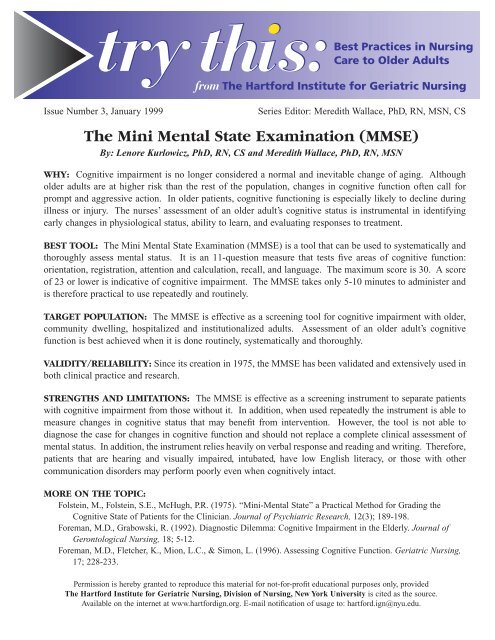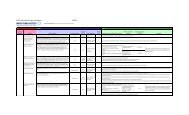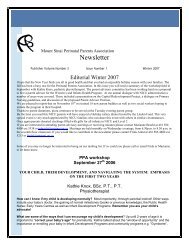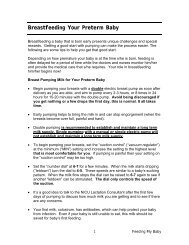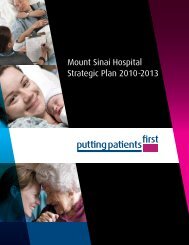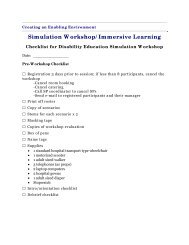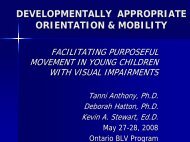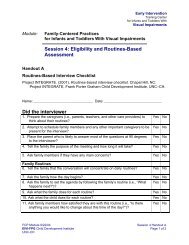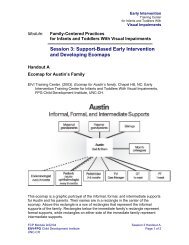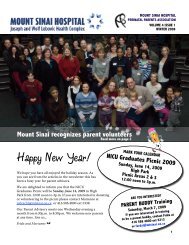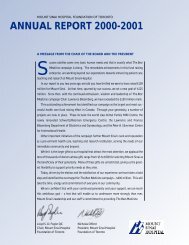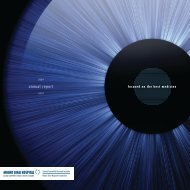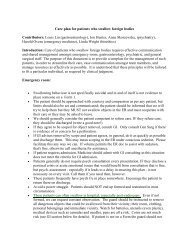The Mini Mental State Examination (MMSE) - KyForward.com
The Mini Mental State Examination (MMSE) - KyForward.com
The Mini Mental State Examination (MMSE) - KyForward.com
You also want an ePaper? Increase the reach of your titles
YUMPU automatically turns print PDFs into web optimized ePapers that Google loves.
Issue Number 3, January 1999Series Editor: Meredith Wallace, PhD, RN, MSN, CS<strong>The</strong> <strong>Mini</strong> <strong>Mental</strong> <strong>State</strong> <strong>Examination</strong> (<strong>MMSE</strong>)By: Lenore Kurlowicz, PhD, RN, CS and Meredith Wallace, PhD, RN, MSNWHY: Cognitive impairment is no longer considered a normal and inevitable change of aging. Althougholder adults are at higher risk than the rest of the population, changes in cognitive function often call forprompt and aggressive action. In older patients, cognitive functioning is especially likely to decline duringillness or injury. <strong>The</strong> nurses’ assessment of an older adult’s cognitive status is instrumental in identifyingearly changes in physiological status, ability to learn, and evaluating responses to treatment.BEST TOOL: <strong>The</strong> <strong>Mini</strong> <strong>Mental</strong> <strong>State</strong> <strong>Examination</strong> (<strong>MMSE</strong>) is a tool that can be used to systematically andthoroughly assess mental status. It is an 11-question measure that tests five areas of cognitive function:orientation, registration, attention and calculation, recall, and language. <strong>The</strong> maximum score is 30. A scoreof 23 or lower is indicative of cognitive impairment. <strong>The</strong> <strong>MMSE</strong> takes only 5-10 minutes to administer andis therefore practical to use repeatedly and routinely.TARGET POPULATION: <strong>The</strong> <strong>MMSE</strong> is effective as a screening tool for cognitive impairment with older,<strong>com</strong>munity dwelling, hospitalized and institutionalized adults. Assessment of an older adult’s cognitivefunction is best achieved when it is done routinely, systematically and thoroughly.VALIDITY/RELIABILITY: Since its creation in 1975, the <strong>MMSE</strong> has been validated and extensively used inboth clinical practice and research.STRENGTHS AND LIMITATIONS: <strong>The</strong> <strong>MMSE</strong> is effective as a screening instrument to separate patientswith cognitive impairment from those without it. In addition, when used repeatedly the instrument is able tomeasure changes in cognitive status that may benefit from intervention. However, the tool is not able todiagnose the case for changes in cognitive function and should not replace a <strong>com</strong>plete clinical assessment ofmental status. In addition, the instrument relies heavily on verbal response and reading and writing. <strong>The</strong>refore,patients that are hearing and visually impaired, intubated, have low English literacy, or those with other<strong>com</strong>munication disorders may perform poorly even when cognitively intact.MORE ON THE TOPIC:Folstein, M., Folstein, S.E., McHugh, P.R. (1975). “<strong>Mini</strong>-<strong>Mental</strong> <strong>State</strong>” a Practical Method for Grading theCognitive <strong>State</strong> of Patients for the Clinician. Journal of Psychiatric Research, 12(3); 189-198.Foreman, M.D., Grabowski, R. (1992). Diagnostic Dilemma: Cognitive Impairment in the Elderly. Journal ofGerontological Nursing, 18; 5-12.Foreman, M.D., Fletcher, K., Mion, L.C., & Simon, L. (1996). Assessing Cognitive Function. Geriatric Nursing,17; 228-233.Permission is hereby granted to reproduce this material for not-for-profit educational purposes only, provided<strong>The</strong> Hartford Institute for Geriatric Nursing, Division of Nursing, New York University is cited as the source.Available on the internet at www.hartfordign.org. E-mail notification of usage to: hartford.ign@nyu.edu.
<strong>The</strong> <strong>Mini</strong>-<strong>Mental</strong> <strong>State</strong> ExamPatient___________________________________ Examiner ____________________________ Date____________Maximum ScoreOrientation5 ( ) What is the (year) (season) (date) (day) (month)?5 ( ) Where are we (state) (country) (town) (hospital) (floor)?Registration3 ( ) Name 3 objects: 1 second to say each. <strong>The</strong>n ask the patientall 3 after you have said them. Give 1 point for each correct answer.<strong>The</strong>n repeat them until he/she learns all 3. Count trials and record.Trials ___________Attention and Calculation5 ( ) Serial 7’s. 1 point for each correct answer. Stop after 5 answers.Alternatively spell “world” backward.Recall3 ( ) Ask for the 3 objects repeated above. Give 1 point for each correct answer.Language2 ( ) Name a pencil and watch.1 ( ) Repeat the following “No ifs, ands, or buts”3 ( ) Follow a 3-stage <strong>com</strong>mand:“Take a paper in your hand, fold it in half, and put it on the floor.”1 ( ) Read and obey the following: CLOSE YOUR EYES1 ( ) Write a sentence.1 ( ) Copy the design shown._____Total ScoreASSESS level of consciousness along a continuum ____________Alert Drowsy Stupor Coma"MINI-MENTAL STATE." A PRACTICAL METHOD FOR GRADING THE COGNITIVE STATE OF PATIENTS FOR THE CLINICIAN.Journal of Psychiatric Research, 12(3): 189-198, 1975. Used by permission.A series provided by<strong>The</strong> Hartford Institute for Geriatric Nursing(hartford.ign@nyu.edu)www.hartfordign.org


